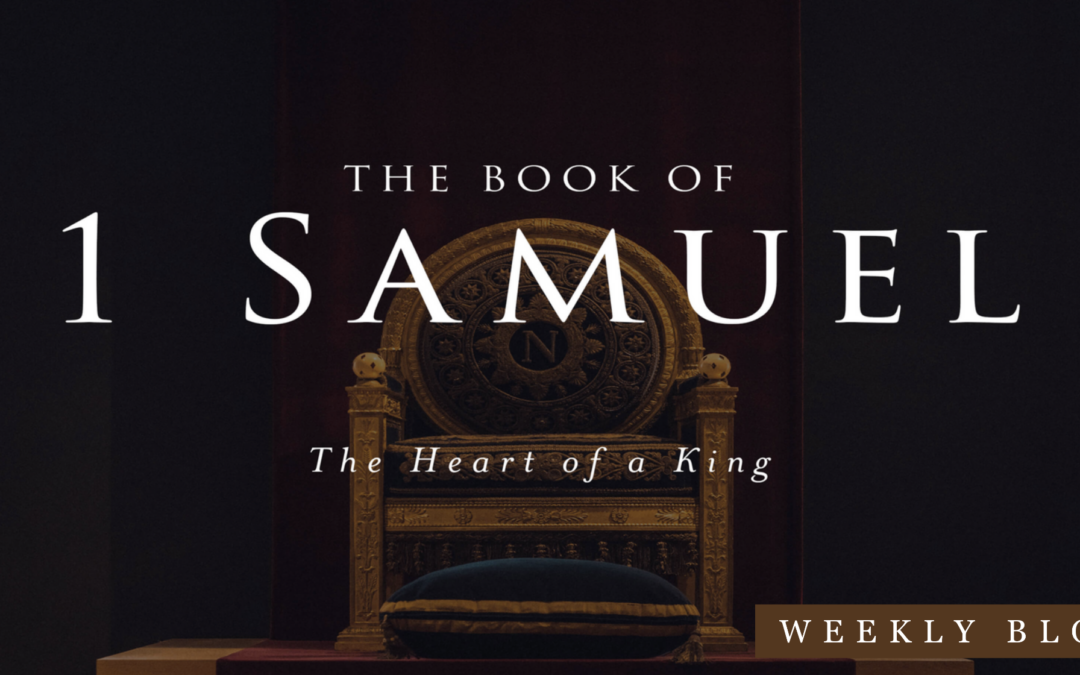THE BOOK OF 1 SAMUEL—Week 3
Crisis 3: Discerning God’s Call (1 Sam. 3)
It may feel a bit odd calling the discerning of God’s will a crisis, but I have to admit that there have been points in my life when it has been just that. There have been times when I wrestled with not only who I was but also with just who God was calling me to be. The summer before my senior year in high school, I felt sure that God had called me to pursue becoming a doctor and medical missionary. By the middle of my sophomore year in college, it was clear that I was mistaken in that call. For three years, becoming a doctor and missionary had been my life’s pursuit and identity. Now what was I supposed to do? I felt lost. I felt embarrassed. Most importantly, I felt fear. I had lost all confidence in my ability to discern God’s will for my life. Accordingly, I was afraid that I would somehow make the wrong decision and miss out on what God had for me. I was trapped in paralysis by analysis.
In this week’s passage, we are looking at God’s call of Samuel. It is a time in Israel’s history when God feels distant, and it is rare hear from him, yet Samuel does. In this story we find some key principles for discerning the will of God:
- Be still and listen. We live in a noisy, busy culture. We have unlimited access to more information than at any point in human history, yet we are more confused than ever. Cell phones, tablets, and TVs keep us up to all hours of the night, and yet we wonder why we are tired. Our exercise is filled with music, podcasts, and telephone conversations. Being still is considered wasteful and lazy—we’re told we must redeem every moment. If we’re not careful, this attitude even bleeds over into our spiritual lives, and we find ourselves so consumed with spiritual busyness that we have little time for an actual encounter with God. Samuel spent his days serving God, but it was not in his service that he encountered God. It was in the stillness that God spoke to him. If we are to discern God’s will, it is imperative that we give time and space for God to speak.
- Be available. Even when Samuel didn’t know it was God speaking to him, his response was still, “Here I am!” So much of discerning God’s will is being available to respond to his call. If you’re like me, you want God to reveal all the specifics of what he has for you. You want a five-year plan. However, that’s not how God works. He wants us to have an available heart that trusts him, even when we don’t know where he is leading. Even in this call God doesn’t reveal to Samuel all the ways he is going to use him. God reveals more about what is going to happen to Eli and his family than he does what is going to happen to Samuel. Nevertheless, Samuel is used mightily because he is available. Contrast Samuel’s attitude here to the attitude of Jonah who, upon hearing God’s call, tried to run from God’s presence.
- Be obedient, even when it is hard or confusing. Not only did Samuel have to proclaim God’s judgment on his spiritual mentor, but he also had to continue to serve under the leadership of Eli and his sons even though they were corrupt. Can you imagine how confusing and discouraging that must have been for Samuel? Samuel knew judgment was coming, and he knew that God had placed a call on his life, but he did not know when or how those things would transpire. All he could do was be obedient to God’s revealed will until such time as he could discern God’s specific will and timing for him. When we do what we know God wants us to do, we can trust that God will be with us and give us discernment when things are not as clear.
Questions:
- Have you ever struggled with discerning God’s will? What did that look like for you? What emotions or fears did you wrestle with?
- How are you at being still? Do you set aside time to be quiet so God can speak?
- Why do you think we are so uncomfortable with silence? What does 1 Kings 19:9-17 tell us about the importance of quiet in discerning the will of God?
- How do availability and obedience work together to help us discern the will of God?
- How does obedience shepherd us through periods of uncertainty?






